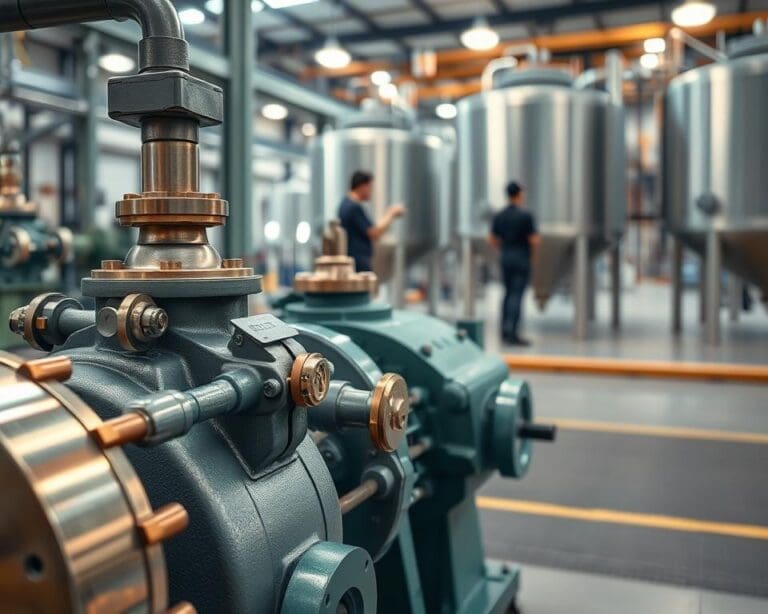In the realm of animal healthcare, understanding the role of a veterinary technician is paramount. A vet tech is an indispensable member of the veterinary team, playing a crucial role in ensuring optimal pet health support. With a variety of veterinary technician duties, these professionals assist veterinarians in multiple capacities, contributing to the wellbeing of animals across diverse settings. As we explore what does a vet tech do, prepare to be inspired by the multifaceted responsibilities they undertake daily to enhance the lives of our beloved pets.
Understanding the Role of a Vet Tech
A veterinary technician plays a vital role in promoting the health and wellbeing of animals. This position requires a unique blend of technical skills, compassion, and dedication to the animal healthcare role. Veterinary technicians are trained professionals who assist veterinarians in various medical procedures, ensuring that pets and other animals receive the best care possible.
Definition of a Veterinary Technician
A veterinary technician is a skilled practitioner who provides direct support in animal healthcare. They perform essential tasks such as conducting medical examinations, assisting during surgeries, and handling diagnostic imaging. This role goes beyond mere technical expertise; it encompasses a deep understanding of animal health and behaviour, enabling vet techs to provide comprehensive care. The veterinary technician duties include administering medications, monitoring vital signs, and assisting with laboratory tests, all contributing to the overall health of their patients.
Importance in Animal Healthcare
The significance of veterinary technicians in the animal healthcare sphere cannot be overstated. They serve as crucial advocates for animal wellbeing, engaging with pet owners to promote responsible pet ownership. Through education on preventative care, nutritional advice, and behavioural management, they enhance the relationship between pets and their caregivers. Furthermore, these skilled professionals ensure that a practice runs smoothly, allowing veterinarians to focus on diagnostics and treatment plans.

What Does A Vet Tech Do
The role of a veterinary technician encompasses a broad range of responsibilities that are essential to animal healthcare. These professionals play a pivotal role in ensuring the well-being of animals by carrying out various vet assistant tasks and veterinary technician duties. Their expertise allows them to provide outstanding support in diverse situations, making their contributions invaluable in veterinary practices.
Key Veterinary Technician Duties
Veterinary technicians are entrusted with numerous duties, showcasing their versatility and skill. Among their primary responsibilities are the following:
- Conducting initial investigations of animals upon arrival at the clinic.
- Preparing animals for surgical procedures, ensuring they are stable and comfortable.
- Performing laboratory tests to assist veterinarians in diagnosing health issues.
- Administering anaesthesia during surgical operations under the supervision of veterinarians.
- Maintaining accurate medical records of each animal treated within the practice.
Daily Responsibilities and Tasks
A typical day for a veterinary technician is fast-paced, involving a multitude of vet assistant tasks that require keen organisational skills. They often educate pet owners about ongoing care, ensuring they understand nutritional requirements and behavioural needs. Furthermore, vet techs are responsible for upholding cleanliness standards throughout the clinic environment, which is vital for the health of all patients.
The variety of tasks undertaken by these professionals often requires them to shift focus quickly, balancing the demands of emergency cases with routine checks. Such high levels of organisation not only optimise patient care but also create a harmonious and efficient working atmosphere in the veterinary practice.
The Skills Required for a Veterinary Technician
Success as a veterinary technician hinges on a unique blend of technical expertise and interpersonal finesse. Veterinary technician duties encompass a vast range of responsibilities, from mastering the intricacies of animal health to providing essential pet health support to worried owners. Understanding the necessary skills not only enhances the technician’s capabilities but also significantly contributes to the welfare of animals.
Technical Skills and Knowledge
A solid foundation in technical skills is crucial for a veterinary technician. This includes:
- Comprehensive knowledge of animal anatomy and physiology.
- Proficiency in pharmacology, enabling the accurate administration of medications.
- Expertise in medical procedures, such as drawing blood or performing diagnostics.
- Experience with veterinary equipment, ensuring safe and effective use during treatments.
These competencies are essential in delivering efficient pet health support, as they empower technicians to manage various health issues effectively.
Interpersonal Skills in Animal Care
Equally important are the interpersonal skills that veterinary technicians must possess. These include:
- Empathy towards both animals and their owners, fostering trust and comfort.
- Patience, especially when dealing with scared or distressed pets.
- Excellent communication skills for clearly explaining procedures and treatments to clients.
This dual competency not only enhances the level of care provided but also reassures pet owners during distressing times, showcasing the vital role veterinary technicians play in animal healthcare.
Vet Nurse Responsibilities
The relationship between veterinary nurses and veterinary technicians plays a pivotal role in the effective delivery of animal care. Both professionals share a commitment to enhancing the health and wellbeing of pets and other animals. Their collaborative efforts ensure that comprehensive care is provided, underscoring the significance of teamwork within veterinary practices.
The Relationship Between Vet Nurses and Vet Techs
While both veterinary nurses and vet techs undertake important duties, their focus often varies. Vet nurse responsibilities largely centre around direct animal care, often providing support in nursing tasks such as administering medications, assisting in surgeries, and monitoring patient recovery. On the other hand, veterinary technician duties frequently involve technical procedures like running laboratory tests, taking radiographs, and assisting with anaesthesia. This division of labour enhances the quality of services provided, creating a more efficient environment.
Collaboration in Veterinary Practices
Collaboration between vet nurses and vet techs cultivates a synergistic relationship, which directly benefits animal healthcare delivery. Regular communication fosters an understanding of each role’s intricacies, leading to improved patient outcomes. Each professional brings unique skills to the table, and together they form a robust support system for both animals and their owners. Their mutual efforts reflect a commitment to excellence, ensuring that the highest standards of care are maintained in every aspect of their work.
Career Opportunities in Veterinary Technology
The field of veterinary technology presents a wealth of career opportunities for vet techs, reflecting the growing demand for animal care professionals. Vet techs can find fulfilling positions in various settings that cater to different interests within the realm of veterinary science. Understanding where one can work and the paths available for advancement can enrich a vet tech’s professional journey.
Where Can Vet Techs Work?
Veterinary technicians play a crucial role in animal care across multiple environments. Common workplaces include:
- Private veterinary practices
- Animal hospitals
- Research facilities, contributing to medical advancements
- Zoos and wildlife rehabilitation centres
Each of these settings offers unique opportunities to apply veterinary technician duties and make a significant impact on animal health and welfare.
Advancement and Specialisation Options
With experience, vet techs have opportunities to specialise in areas such as anaesthesia, dental technology, and emergency care. These specialisations enhance a technician’s skills and allow for greater involvement in specific aspects of animal healthcare. Advancement into supervisory roles or managerial positions within veterinary practices is also achievable for those who pursue continued professional development and certification in specialisations.
The Future of Veterinary Technicians
As we look ahead, the landscape of veterinary technology is gearing towards significant transformation, propelled by advancements in veterinary medicine and technology. The role of veterinary technicians is set to evolve, expanding their duties and responsibilities to encompass a wider range of skills. This progression not only enhances their importance in the animal healthcare role but also reinforces their contribution to modern veterinary practices.
The integration of emerging technologies, such as telemedicine and cutting-edge diagnostic tools, is changing how veterinary technicians carry out their duties. These developments are creating exciting opportunities for vet techs to provide enhanced care to animals, empowering them to be more directly involved in patient assessments and follow-ups. By adapting to these innovations, veterinary technicians will ensure that they remain essential players in promoting overall pet health and welfare.
Furthermore, the recognition of veterinary technicians as critical healthcare providers is becoming increasingly prevalent. As they take on more responsibilities within veterinary practices, they will be positioned at the forefront of veterinary innovation. This promising future not only signifies a brighter path for veterinary technicians but also highlights the ongoing significance of their role in safeguarding animal health across the UK.









